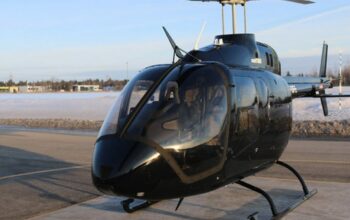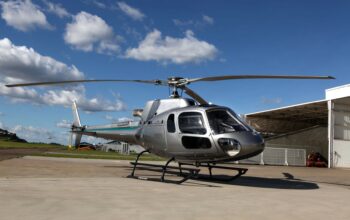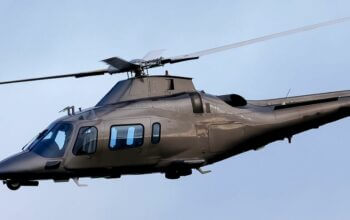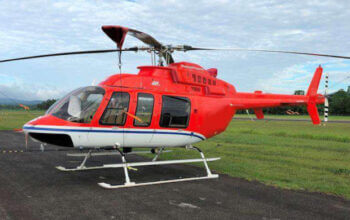Estimated reading time 5 minutes, 48 seconds.
As an executive with one of the world’s leading telecommunications companies, Steve Demy saw the impact cutting-edge technology can have on a business, and how eager software developers are to provide it.
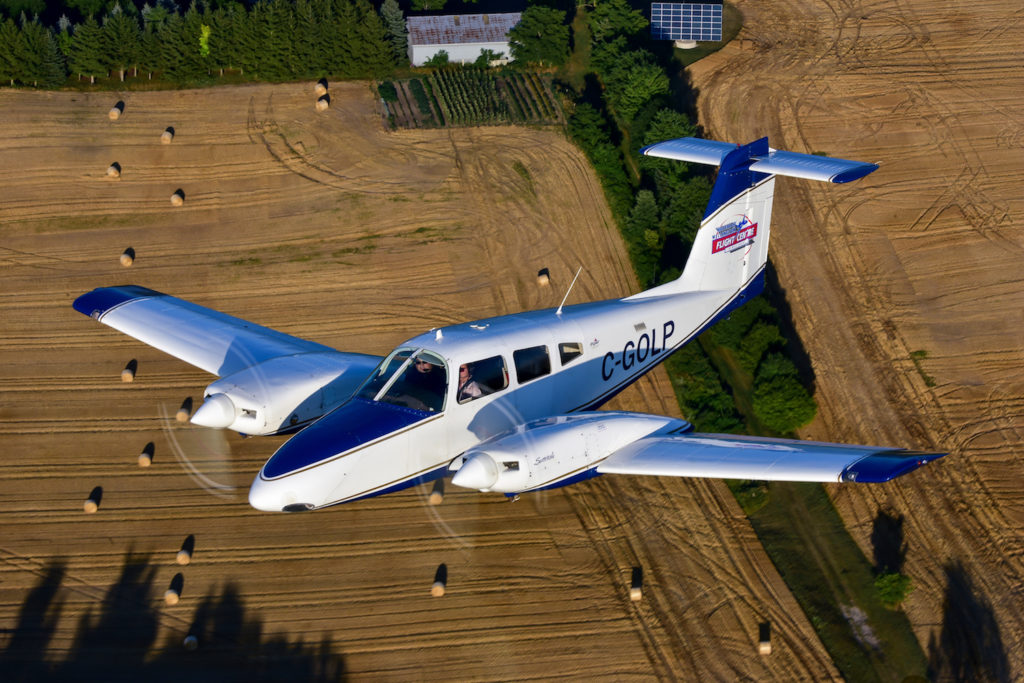
He came to believe modern support systems can be the difference between success and failure, and he saw a significant lack of them in Canada’s flight training industry.
“It’s an environment where schools are small, they’re fragmented, and they’re not flush with money,” said Demy, a retired vice-president with Nokia who owns and operates a Columbia 300 aircraft in Victoria, B.C.
“There is no such thing as a community of software writers that provides support systems [for flight schools].”
Demy wanted to lighten the workloads of young, relatively inexperienced pilots at flight schools across the country, many of whom are asked to run through tedious manual processes to prepare for flight.
“What I find is, pilots under pressure having to do too much work,” said Demy, who is also founder of SND Aviation, an aviation-focused software company.
“While this is all happening, the aircraft is on the ground. An aircraft that’s on the ground is not generating revenue for the school, and it’s also consuming capacity that might get used by another student.”
Demy set to work, spending five years developing FleetCaptain, a comprehensive software system that pools all of a flight school’s operational data into a single hub.
In an industry where some schools use 1970s technology to run 21st-century operations, Demy believes FleetCaptain can have a revolutionary impact.
“I wanted to find a way that allowed the pilot to get better service, so he wouldn’t have to be under pressure, collecting data, doing weight and balances, etc.,” said Demy.
“And I wanted the flight school to feel as though the dispatch process was easier, so the dispatchers weren’t running around trying to make ends meet … and I wanted the flight schools to make more profit.”
“What FleetCaptain does is, it accomplishes all those things by effectively computerizing the whole process of operating the fleet,” he added.
FleetCaptain is one of several products pushing aviation away from paper-based systems to centralized software.
But while some competitors focus on a single function, FleetCaptain is a comprehensive system that provides detailed information from every facet of a flight school.
“The distinguishing feature is that FleetCaptain binds all of the operational knowledge of each of the departments in a flight school, and it makes every decision with everyone’s data in mind,” said Demy.
This can be everything from fuel and oil levels to comprehensive inspection records, and defects or maintenance conditions that can affect the dispatch of the aircraft.
“It sort of orchestrates the activities all behind the scenes to make sure an aircraft that’s dispatched is really fit for dispatch and is the right aircraft,” said Demy.
“It just picks the right airplane for the purpose.”
Waterloo Wellington Flight Centre (WWFC), a leading flight school in southwestern Ontario, introduced FleetCaptain in April 2018, and is the system’s launch customer.
“We have certain escape provisions, but I can’t honestly see us escaping from it at this point in time,” said Bob Connors, general manager of WWFC.
“It’s a good tool, and we’re looking for some other tools, and looking to interconnect software systems so that we eliminate that re-typing, re-copying exercise, and make the system as transparent as we can.”
While it’s too early to say definitively if FleetCaptain has increased efficiency at WWFC, Connors said it seems to have done so. He noted the school’s number of flying hours have increased under the system.
“Probably the biggest thing for me is that it provides real-time and historical data around what is happening today, what has happened in the time that we’ve been using it, by aircraft type, by individual aircraft, by time of day, by day of the week,” he said.
“The amount of data that we have available to utilize in looking at how we can improve the efficiency of our operation is huge.”
Demy is the sole employee of SND Aviation and completed all of the coding for FleetCaptain himself, he said. He continuously refines the software based on user feedback, and plans to continue refining it long into the future.
“Over the last five years I’ve declared it complete probably about once every two weeks,” he said.
“And then shortly thereafter I come up with a new idea, and the idea just builds. It’s a little bit like adding a layer of snow to a snowball … I’m passionate about the continued evolution of the product.”
While development will continue in the months ahead, Demy is also doing what he can to spread the word about FleetCaptain as a productivity tool.
“Every flying school will typically tell you that they are more efficient now than they’ve ever been in the past,” he said.
“And that is correct; however, they’re still about half as efficient as they can be.”



